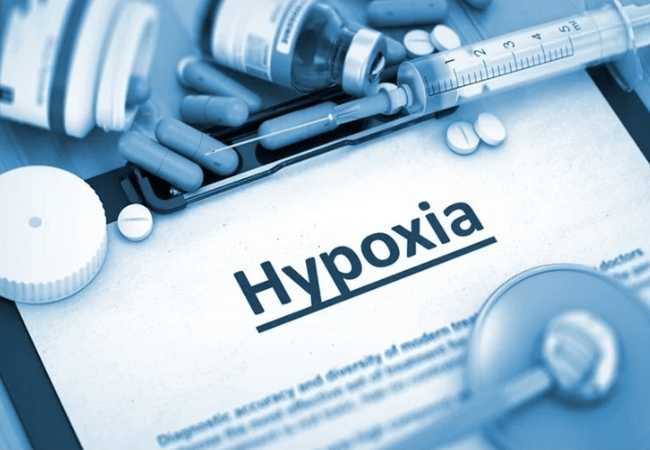Hypoxia: Causes, Symptoms, Management and Treatment
Definition of Hypoxia:
The term hypoxia is a condition where the tissues are not oxygenated adequately, usually due to an insufficient concentration of oxygen in the blood.

Causes of Hypoxia:
Common causes of hypoxia have listed in the below:
- A severe asthma attack, or flare, can cause hypoxia in adults and kids.
- Hypoxia can also result from lung damage due to trauma.
Other things can cause hypoxia include:
- Lung diseases such as chronic obstructive pulmonary disease (COPD), emphysema, bronchitis, pneumonia, and pulmonary edema (fluid in the lungs).
- Strong pain medicines and other drugs that hold back breathing.
- Heart problems.
- Anemia (a low number of red blood cells, which carry oxygen).
- Cyanide poisoning (Cyanide is a chemical used to make plastics and other products).
Sign and Symptoms of Hypoxia:
Although they can vary from person to person, the most common hypoxia symptoms are:
- Changes in the color of your skin, ranging from blue to cherry red,
- Confusion,
- Cough,
- Fast heart rate,
- Rapid breathing,
- Shortness of breath,
- Sweating,
- Wheezing.
Treatment and Management Process of Hypoxia:
Oxygen therapy and other treatments for hypoxia:
1. Oxygen therapy:
Reversing hypoxia involves increasing oxygen intake. A common method for providing extra oxygen is oxygen therapy. Oxygen therapy is also called supplemental or prescribed oxygen.
2. Liquid oxygen:
Another option is liquid oxygen. Liquid oxygen turns into gas when it leaves its container. Though liquid oxygen can take up less space than compressed oxygen, it can also evaporate. This means the supply may not last as long as other forms.
3. Medications:
Besides oxygen treatments to treat hypoxia, regular medications for COPD, may also need medications to control breathing problems. These may come from other causes that include:
- Blood pressure medications that reduce swelling,
- Heart medications that control heart failure,
- Heart medications that control chest pain,
- Medications that control indigestion or reflux disease (GERD),
- Allergy medications.
Aside from medical treatments, it’s important to stay away from environmental triggers that in clude:
- Smoking,
- Secondhand smoke,
- Air pollution,
- Chemicals or dust in the air.
What will Happen If Hypoxia is Not Treated?
If hypoxia is not treated following occurs:
The brain depends on oxygen to perform even the most basic functions. Without it, the brain quickly ceases to function. And if oxygen deprivation continues, death or permanent brain damage takes just a few minutes. Hypoxia is the deprivation of oxygen to the brain, and is one of the deadliest injuries. Even people who survive hypoxia may experience lifelong aftereffects.
More questions related to this article:
- What is hypoxia?
- What are the main causes of hypoxia?
- What are the common sign and symptoms of hypoxia?
- What are the clinical features of hypoxia?
- What is a dangerously low oxygen level?
- Describe the management of hypoxia.
- Describe the treatment of hypoxia.

Maria Khatun Mona is a Founder and Editor of Nursing Exercise Blog. She is a Nursing and Midwifery Expert. Currently she is working as a “Senior Staff Nurse” at “Dinajpur Medical College Hospital”, Bangladesh. She has great passion in writing different articles on Nursing and Midwifery. Mail her at “maria.mona023@gmail.com”
